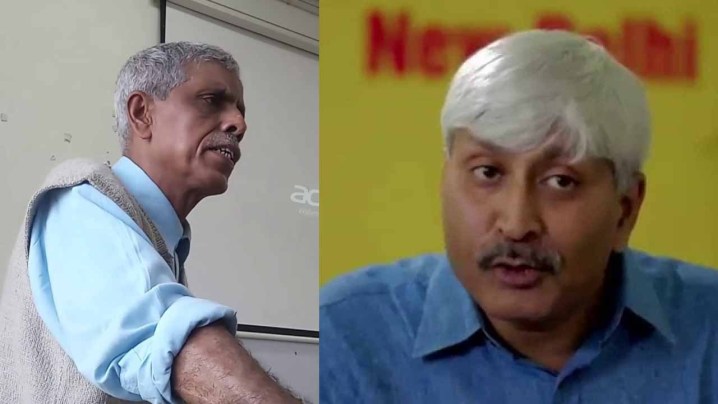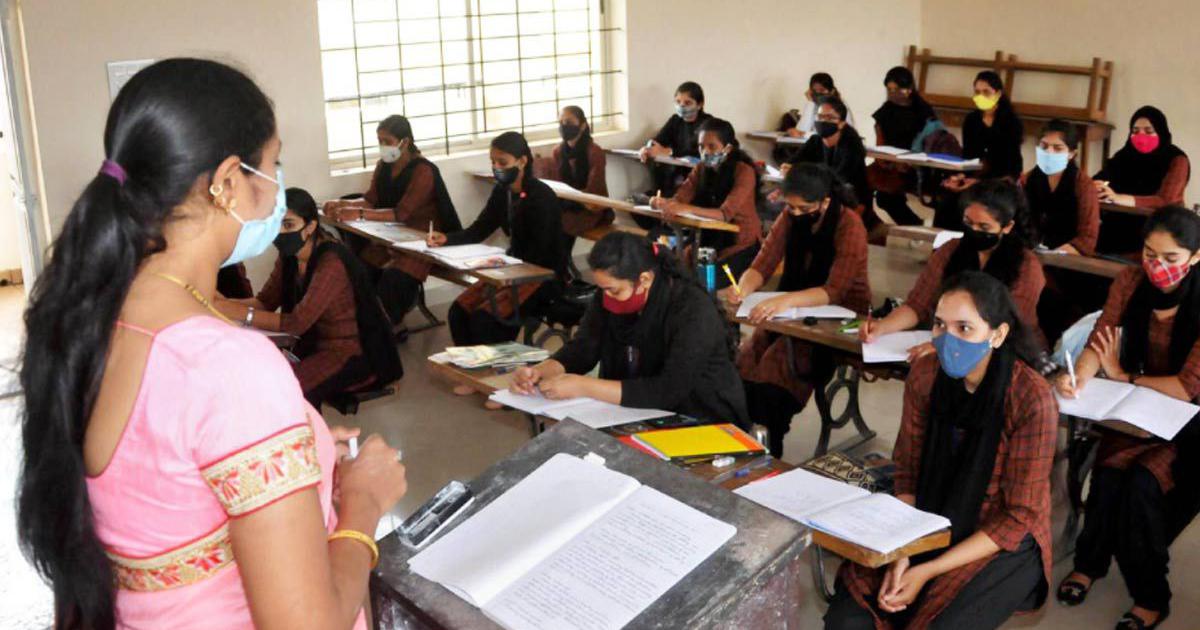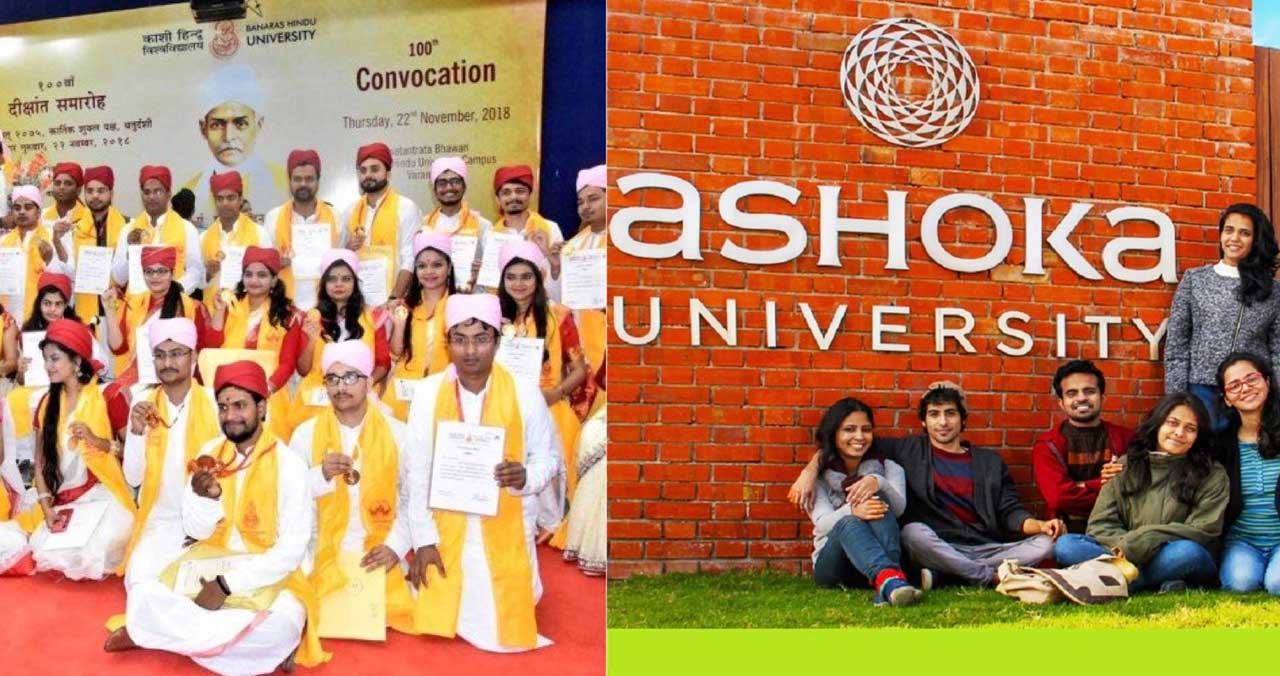BAHU-JAN DAILY
Last week, two poignant pieces on the fall of the prestigious Jawaharlal Nehru University (JNU) in Delhi were published. Both the pieces leave those who are for freedom of expression, shaken. One of them is by Avijit Pathak, a professor of sociology in JNU, and the other by Professor Apoorvanand, a professor of Hindi in Delhi University. The Story of the Fall of a Great University appeared in The Wire and ‘Killing JNU’ appeared in the Indian Express. Both the writings exemplify courage and resistance and expose the present government’s antics. However, unfortunately, their truths are one-sided and their arguments can win the support of neither the intellectuals outside the university campuses nor the general public.

Professor Pathak’s pain
Pained at the state of affairs, Prof Pathak said he had just advised his friend not to enrol his daughter in JNU. He wrote, “I was always over-enthusiastic about my university; I used to tell people: JNU is a dream, a project, a fantastic experiment – a public university reconciling excellence and equality, a creative space conducive to the growth of critical thinking, emancipatory ideas and alternative life-practices.”[1] But due to the developments over the last few years, “I have lost that confidence. How can I ask my friend to send his daughter to a university where the psychology of fear or the bombardment of threatening circulars invades every sphere of life.”[2] Today the situation is such that, “I ask my research students: submit your theses as early as you can; this is no longer the place you dreamed of. I realise that so many stalwarts spent their life-energy to build this university. It took time. But then, see the irony. In three years it can be finished. Is it that in our times, destroyers are more powerful than creators?”[3]

He wrote that posters with political and social messages put up by the students are being removed from the walls of a university known as the bastion of discourses and students are being warned to know their limits. The teachers who joined a protest march taken out by students last year are also being harassed by the administration. Forty-eight teachers have been chargesheeted for taking part in the demonstration. Prof Pathak himself is one of them. Instead of a perspective shaped by discussions, the campus is in the stranglehold of the unilateral orders of a “competent authority”. Both teachers and students are in thrall of suspicion and fear. Hypocrisy and superficiality are all too evident as everyone tries to save their skin.
Similarly, Prof Apoorvanand has mentioned the end of JNU’s democratic culture in his piece published on 2 August 2019. He said that JNU’s professors were not being given permission to take part in conferences and seminars and that rules to curb freedom of expression are being foisted on them – rules that have been framed to keep government officials in check.
Prof Apoorvanand’s arguments
Prof Apoorvanand writes that professors play a very different role to that of civil servants: “In democracies, people take decisions. But they do not have the intellectual wherewithal to examine the claims of the “powers” which seek their consent to rule them. Academics with their long engagement with knowledge have the tools to test the political and policy promises offered to people. They must share it with the public to help them take informed decisions. So, they need freedom, not for their own sake but for the good of the society.”[4]
Questions that make you uneasy
Avijit Pathak and Apoorvanand are distinguished figures in academia. Their observations apply to not only JNU but to all of India’s higher education institutions – whom the present Bharatiya Janata Party government are forcing to be at its beck and call. The main concern of these professors is the mental and physical torture of the intellectuals associated with universities and the snuffing out of intellectual democracy in the present academic landscape. These concerns are more or less representative of the academic world’s concerns.
Undoubtedly, this is the time to accept that the concerns of academia are genuine and to stand with them. But we should also look at the reasons that obviously led to this situation. At a time when the autonomy of the academic world is under attack, reflecting on these reasons may cause some unease among the academic community. But this is the time when they should look back and reflect on whether the government alone is responsible for this state of affairs. This is also the time when they are being compelled to reflect on these things, which they wouldn’t have agreed to do otherwise. But the question is whether they are ready to part with the state of affairs that led them here.
For instance, in his aforementioned op-ed, Prof Apoorvanand has written that the developments should “attract public scrutiny”[5]. Obviously, this proposal is a load of hot air. University intellectuals might be tortured and driven to their wits’ end at the hands of the government but they wouldn’t be ready to come under public scrutiny.
In the name of autonomy of universities, a well of intellectual and material luxury has been dug from which only professors can drink. Let alone the general public, they have looked down on intellectuals who are in public life but don’t happen to be professors. They have kept the government-funded conferences, seminars, research projects and foreign tours meant for intellectuals to represent India to the professors themselves.
Consider this recent development. The University Grants Commission (UGC) issued a circular that said the universities would recognize only material published in those magazines that appear on its list. Hindi magazines, such as Forward Press, Hans, Samyantar, Kathadesh, Naya Gyanodaya, Udbhavana, which have contributed immensely to the various disciplines in Humanities and Sociology, are not on this list. When these magazines protested, UGC said it would set up a committee and ask universities to recommend magazines. The committee would then prepare a list of recognized magazines on the basis of recommendations from universities.
The professors saw nothing wrong in this rule. Rather, they considered it appropriate that they should have the right to make recommendations. They did not even consider it right to deliberate over the UGC’s order that was an insult to the knowledge, creativity and professional experience that pervades public life. The job of the universities is to distribute certificates among its students for studying the knowledge and science that pervades society. They don’t have the capability to award certificates to entire society. Attempting to do so merely makes their ‘frog-in-the-well’ situation worse. The universities do have people who have done intellectual work of public importance but the irony is that most of them have focused on their political organizations instead of the development of intellectual democracy. Recruitments, fellowships, etc are distributed among relatives, members of a particular caste, yes-men, members of a particular organization. The result is that academia has turned into a sanctuary of those belonging to certain “high castes” – mainly Brahmins and other Dwijs.
Professor Apoorvanand has written in the aforementioned piece that “Academic freedom is slightly more than the freedom of expression. It is a basic necessity without which the business of knowledge cannot be conducted.”[6] Isn’t there a paradox here? While the professors expect the public to join them in their struggle, they theorize that their necessities are more than those of other people.
The main function of a professor is to teach – in other words, to interpret knowledge. The building of knowledge is a continuous process – the universities are as much part of the process as the farmer’s barn, the livestock farmer’s cowsheds and the ironsmith’s furnace.
The building of knowledge is not mechanical. In the name of building knowledge, universities have become like those vessels with a little feed placed before cattle when they are actually chewing cud. Projects and fellowships worth hundreds of thousands of rupees are assigned to ‘research’, which is nothing more than copying content from one sheet of paper to another. Professors have become self-appointed authors and thinkers. They hold seminars where they themselves make presentations, give and take certificates; write books and include them in the syllabus. In the name of autonomy, they have kept not only universities but also institutions such as the University Grants Commission in their clutches. This is not all. Modern Dronacharyas and Chanakyas appear determined not to let youths from weaker sections of society to enter universities. The provision of reservation for OBCs in government jobs was made in 1992, which all sections of society gradually accepted. But when 14 years later, in 2006, reservation was implemented in higher education, the sections dominating the universities vehemently protested – so much so that there were no reservations for associate professors and professors even in 2019. It was only after the present government intervened that OBC quotas have been assigned in the advertisements for recruitment issued in the past few months. The government is aiming at two objectives with this move, the primary one being to provide social and technical validity[7] to the recently implemented reservations for Economically Weaker Sections (Savarna reservation).
OBCs are the largest group in India in terms of population. All surveys and data show that they are the least represented in higher education. The absence of this group means that higher education has been deprived of the largest source of indigenous knowledge and experience. This is not just a question of jobs and facilities. Uninterested in the knowledge of the 60 per cent of the country’s population, these universities may look like lush green islands. But take away the Dalit and Adivasi discourse, and they are essentially deserts of knowledge. If in the middle of this desert JNU managed to become a lush green oasis, the main credit does not go to the vice-chancellors, deans, registrars and professors who hail from just a few castes and communities but to JNU’s unique reservation policy. JNU is the only institution, where for admission students who come from backward areas (areas which are economically and socially backward) and all women are given additional points. This rule has made it possible for thousands of youths from backward areas to enter the university, armed with their vast lived experience. JNU became JNU with the intellectual abilities of these youths. In the years that followed, these youths fought for implementation of reservation for Scheduled Castes and Scheduled Tribes and for special preference to OBCs. Comrade Chandrashekhar, an OBC himself, led the struggle. He won, and in 1995 itself – 11 years before the provision for reservation for OBCs in higher education was put in place – JNU had an admissions policy of giving preference to OBCs. (For more information, see Bahujan discourse puts JNU in the crosshairs published in FORWARD Press in March 2016). Without underlining this contribution of the various backward areas and OBCs in the making of JNU, we won’t be able to plan for the future.
But has the struggle of backward classes who make up a chunk of the workers, producers and craftsmen of the nation got anywhere despite government assistance? Did the professors who demand academic freedom fight to take this struggle forward? Have they ever acknowledged that the policy of giving preference to youths hailing from backward areas and classes in admissions has benefited their academic world? Would they draw a lesson from that experience and implement the same policy in faculty recruitment?
Today, there is neither an OBC quota for hostel accommodation in central universities, including JNU; nor reservation for OBCs in postdoctoral fellowships and projects; nor are there waivers for OBCs on application fees, etc. The Indian Council for Social Science Research (ICSSR), which promotes and funds research in social sciences; the Impactful Policy Research in Social Sciences (IMPRESS), a programme focusing on policy research; the Indian Institute of Advanced Study; and other research institutions don’t have reservations for OBC applicants[8].
Speaking of Apoorvanand, Avijit Pathak and a handful of other professors, though, we cannot forget their commitment to democratic values in their ideological contributions, their writings and personal lives as they pursue, in all honesty, communal harmony and the dream of a better world. But when it comes to their struggle for autonomy of universities, they have to reflect on exactly from whom they are expecting help? The public are keen to stand with them, but first, the public need to be assured that the professors consider themselves part of the public and that they are fighting for securing representation of all their brothers and sisters and for securing respect for their knowledge. Intellectuals who are active outside the academic world and social and cultural workers will join you in your struggle only when you use your academic capabilities to refine their knowledge and promote respect for it.
Historically, this may be debatable but folklore has it that after the invaders set Nalanda Mahavihar (Nalanda University) on fire, the buildings kept smouldering for the next six months. When the buildings caught fire, the researchers of Buddhist literature fled, so did the invaders. But then why would the residents of the surrounding 200-odd villages take any interest in dousing the fire? The food supplies for the university came from them, but they had no part in the comfortable life, the facilities and the academic ruminations of the university. The university had instead become a burden to them; it had no respect for their knowledge. Few are aware that the architecture of JNU is based on the architecture of the ancient Nalanda University. The multistorey library, the hostels – they were all there at Nalanda too. Various concepts for developing close teacher-student bonds have been borrowed from Nalanda Vihar.
When, in 2016, government-nurtured organizations attacked JNU and maligned the university on TV channels and in newspapers, the people of the neighbouring Munirka, in Delhi, were not with the university but with the attackers. The residents of Munirka, most of whom hail from the Scheduled Castes and Other Backward Classes, held anti-JNU rallies and demonstrations.
These similarities are not coincidences, professor! You can’t wish away these similarities and ironies as a consequence of reactionary politics. This is the lesson from history and if we learn from it, we will be able to build a future.
Translation: Anil; copy-editing: Amrish Herdenia
References:
[1] Pathak, Avijit, The Wire, The Story of the Fall of a Great University
[2]ibid
[3]ibid
[4]Apoorvanand, The Indian Express, Killing JNU, 2 August 2019
[5]ibid
[6]ibid
[7]The University Grants Commission and the universities used to give an argument – which went against the rule – for not reserving vacancies for associate professor and professor for OBCs. Their argument was that for recruitment to these posts, experience of having worked as an assistant professor was one of the qualifying conditions and that the remuneration of an assistant professor put the candidate in the ‘creamy layer’, hence OBC (non-creamy-layer) reservations couldn’t be implemented. Once the Savarna reservation came into force, the same argument would apply to its beneficiaries and they wouldn’t get reservation in recruitments to these posts.
[8]These institutions have a provision for reservations for Scheduled Castes and Scheduled Tribes
Forward Press also publishes books on Bahujan issues. Forward Press Books sheds light on the widespread problems as well as the finer aspects of Bahujan (Dalit, OBC, Adivasi, Nomadic, Pasmanda) society, culture, literature and politics. Contact us for a list of FP Books’ titles and to order. Mobile: +917827427311, Email: info@forwardmagazine.in)
The titles from Forward Press Books are also available on Kindle and these e-books cost less than their print versions. Browse and buy:
The Case for Bahujan Literature
Dalit Panthers: An Authoritative History
Mahishasur: Mithak wa Paramparayen
The Case for Bahujan Literature
Dalit Panthers: An Authoritative History





